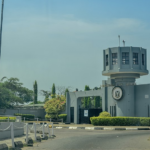Some of the cheapest universities in Nigeria include the Federal University of Agriculture, Abeokuta; Ahmadu Bello University, Zaria; and the University of Lagos.
As the cost of higher education continues to soar, many students and their families are left wondering if a degree is still within affordable reach. In Nigeria, where over 1.94 million students sat for the 2024 Unified Tertiary Matriculation Examination (UTME), the quest for affordable education has become a pressing concern.
With the average cost of tuition in private universities exceeding N1 million per year, many are forced to seek out more affordable options.
After conducting in- depth research on tuition fees and academic programs at various universities in Nigeria, I have compiled a list of the top 10 cheapest universities in Nigeria.
If you’re a prospective student or a parent seeking affordable university options, this list is for you. Read on as I reveal my top 10 picks of universities in Nigeria that offer quality education at an affordable price.
READ ALSO: 11 Best Tech Schools In Lagos
Top 10 Cheapest Universities in Nigeria
Please note that the list below is in no ranking order. The major determinants to consider vary based on faculty, course, and level of study, making it almost impossible to rank the universities. For instance, a university may have lower fees for arts and humanities courses but higher fees for science and engineering programs. As such, this list should be considered a general guide.
And here is the top 10 cheapest universities in Nigeria:
1. Federal University of Agriculture, Abeokuta (FUNAAB)

FUNAAB is a federal institution located in Abeokuta, Ogun State. It was established in 1988 and focuses on agricultural and related sciences. The university offers undergraduate and postgraduate programs across faculties such as Agriculture, Engineering, Environmental Sciences, Management Sciences, and Natural Sciences.
Funaab is one of the cheapest universities in Nigeria. What sets FUNAB apart is its relatively low tuition fees. For freshers taking VET Medicine or Engineering Course, the school fees is N103,000 while the school fees for all other courses are N83,000.
FUNAAB maintains high academic standards and provides students with a conducive learning environment. Whether you’re interested in Crop Production, Animal Science, or Agribusiness, FUNAAB offers a cost-effective pathway to acquiring knowledge and skills in the agricultural sector.
2. Ahmadu Bello University, Zaria (ABU Zaria)

ABU Zaria is a federal government university in Zaria, Kaduna State, Nigeria. It was established on October 4, 1962; it was the pioneer university in Northern Nigeria. The institution was named after Alhaji Sir Ahmadu Bello, the first premier of Northern Nigeria.
ABU has grown to become one of Nigeria’s largest universities, with over 15 faculties and 110 academic departments. Its faculties include Agriculture, Business and Public Administration, Biological and Physical Sciences, Engineering, Environmental Design, Education, Medical and Pharmaceutical Sciences, Law, the Humanities, and Social Sciences.
What sets ABU apart is its commitment to providing qualitative education at reasonable costs. The university charges different tuition fees based on faculties and student status. For new students (freshers), the fees range from ₦75,125 to ₦82,625, while returning students (staylites) pay between ₦66,500 and ₦73,250, depending on their chosen field of study.
Medical and engineering-related courses may demand slightly more financially.
3. University of Lagos (UNILAG)

UNILAG is a public research university in Lagos, Nigeria. It was founded in 1962 as one of the first-generation universities in Nigeria and is consistently ranked among the top universities globally in major education publications.
UNILAG has three campuses: two in Yaba and its College of Medicine in Idi-Araba, Surulere. The main campus, surrounded by the Lagos Lagoon, spans 802 acres of land.
Each year, UNILAG admits over 9,000 undergraduate students and enrolls more than 57,000 students across various programs and faculties.
What sets UNILAG apart is its commitment to providing quality education at almost no cost. You may wonder, ‘At almost no cost’? Yes, because the UNILAG tuition fee is absolutely free, another reason why it is one of the cheapest universities in Nigeria.
However, there are mandatory charges all students must pay, such as exam fees, library services, and so on.
Considering prevailing economic realities, the university recently reviewed its obligatory fees for new and returning undergraduate students. For new students, the mandatory charges per academic session include tuition (nil), registration (₦25,000), examinations (₦15,000), library services (₦15,000), and more.
The total fees range from ₦126,325 (courses without lab/studio) to ₦176,300 (courses with lab/studio, e.g., medical-related courses).
Returning students pay fees ranging from ₦80,750 (without lab/studio) to ₦120,250 (with lab/studio).
4. Obafemi Awolowo University (OAU)

Obafemi Awolowo University (OAU), formerly known as the University of Ife, is a federal government-owned institution located in Ile-Ife, Osun State. It was established in 1961 as the University of Ife and later renamed in honor of Chief Obafemi Awolowo.
The university has since gained a reputation for academic excellence and is highly ranked among Nigerian and African universities.
It is one of the most prestigious and cheapest universities in Nigeria—economically accessible higher education institutions.
With over 35,000 students enrolled in various undergraduate and postgraduate programs, OAU offers a diverse learning environment across its two campuses: the main Ile-Ife campus and the Ede campus for the College of Health Sciences.
OAU School’s fee structure is relatively affordable compared to other institutions of similar stature.
Below is the breakdown of their school fees by faculty.
Faculties of Arts, Law, and Humanities:
- Freshers (newly admitted students) pay ₦151,200.
- Returning students pay ₦89,200.
Faculties of Technology and Science:
- Freshers pay ₦163,200.
- Returning students pay ₦101,200.
Faculties in the College of Health Sciences and Pharmacy:
- Freshers pay ₦190,200.
- Returning students pay ₦128,200.
These fees cover registration, matriculation, library services, and identity card issuance, among other things. The tuition fees are valid for the entire duration of the academic session.
5. Bayero University Kano

Bayero University Kano (BUK), located in Kano, Nigeria, is renowned for its affordability and academic excellence. Established in 1975, BUK has grown to become one of the top universities in Nigeria, offering various undergraduate and postgraduate courses.
Bayero University Kano offers a remarkably affordable fee structure. New students pay a comprehensive fee that includes tuition, accommodation, and various administrative charges.
For many undergraduate programs, the total fees for freshers are NGN 110,000. Meanwhile, those in specialized fields such as Medicine and Engineering incur slightly higher costs.
BUK School Fees for freshers and returning vary based on the program and level of study. However, returning students will pay less than freshers. Non-Nigerian students pay ₦300,000 for tuition.
6. Federal University of Technology, Minna

The Federal University of Technology Minna, located in Niger State, Nigeria, is renowned for its emphasis on technological education and affordability.
Established in 1983, FUT Minna has grown to become one of Nigeria’s leading universities, offering various undergraduate and postgraduate programs focused on science and technology.
For freshers, FUT Minna offers an affordable fee structure for all students. Generally, Students in most faculties pay between NGN 50,000 and NGN 75,000 per academic year, depending on their chosen program.
For example, the engineering program is N71,000 for freshers while it is N39,900 for returning students as they do not include certain one-off charges applicable only to new students. The fees cover essential services such as registration, library access, and other academic-related activities.
FUT Minna is one of the very few schools that hasn’t increased their school fees in recent years.
7. University of Nigeria, Nsukka (UNN)

The University of Nigeria Nsukka is located in Enugu State, Nigeria. It is one of the oldest and most prestigious universities in Nigeria. It was established in 1960, and has since then maintained a high academic standard.
Despite its high academic standards, UNN remains one of the cheapest universities in Nigeria. For freshers, the University of Nigeria Nsukka offers an affordable fee structure that includes tuition and various administrative charges.
The total fees for new students range from NGN 112,000 to NGN 120,000 per academic year, depending on the faculty and program of study.
The fees for returning students are generally lower than those for freshers, as they do not include certain one-off charges required only in the first year. Typically, returning students pay between NGN 85,000 and NGN 95,000 per academic year, depending on their program and level of study.
For those in faculties of Medicine, Dentistry, Pharmacy, Health sciences, and Basic Medical Sciences, they pay slightly higher fees due to their course of study. First-year students pay N120,000, Others pay N95,000, while final year students pay N92,000.
This fee covers essential services such as registration, medical services, library access, and laboratory fees, where applicable.
The affordability of these fees ensures that UNN is on this list of the cheapest universities in Nigeria.
8. University of Abuja

The University of Abuja, fondly referred to as UniAbuja, stands out as one of the most affordable options among Nigerian universities. It was established in 1988 and has grown to become a reputable institution offering various undergraduate and postgraduate programs across multiple disciplines.
One key factor contributing to UniAbuja’s status as one of the cheapest universities in Nigeria is its relatively low tuition fees compared to other institutions. New student fees typically range from ₦96,500 for Arts programs to ₦137,500 for programs like Agriculture.
Compared to other federal universities, these figures are often lower, which makes UNIABUJA a financially attractive option.
9. University of Benin

The University of Benin (UNIBEN) is widely regarded as one of the most affordable universities in Nigeria, offering a balance between quality education and reasonable tuition fees.
It was established in 1970 as an institute of technology before being recognized as a university by the National Universities Commission in 1971.
UNIBEN is considered one of the cheapest universities in Nigeria. Its tuition fees for both undergraduate and postgraduate programs are relatively low compared to many other universities in Nigeria.
This affordability factor makes UNIBEN an attractive choice for prospective students seeking high-quality education without incurring a substantial financial burden.
UNIBEN school fees range from ₦120,000 to ₦150,000 per year for both new and returning students. This fee includes Examination Fees, Laboratory Fees, library fees, ICT fees, and other dues, making UNIBEN a significantly more affordable option.
10. National Open University of Nigeria

The National Open University of Nigeria (NOUN) stands out as one of the most affordable universities in the country. It offers flexible and accessible higher education to a diverse range of students.
Established in 1983 but operationalized in 2002, NOUN has since been a pioneer in distance learning and open education in Nigeria.
One of the primary reasons for NOUN’s affordability is its unique approach to education delivery. As an open and distance learning university, NOUN utilizes innovative teaching methods that reduce the need for physical infrastructure and associated overhead costs. This allows the university to offer significantly lower tuition fees compared to traditional brick-and-mortar universities.
NOUN’s fee structure is also designed to be inclusive and transparent. Tuition fees typically cover course materials, examination fees, and administrative costs. On average, NOUN’s fees range from ₦18,000 to ₦36,000 per year for undergraduate students, making it a highly accessible option for a wider range of students. This affordability extends to working professionals, stay-at-home parents, and geographically remote individuals who might not be able to attend a traditional university.
Furthermore, NOUN’s flexible study schedule allows students to work at their own pace, eliminating the financial burden of full-time enrollment. However, one disadvantage of studying at NOUN is that students do not participate in the compulsory NYSC.
After reading to this point, you might wonder why certain schools, such as the University of Ibadan, the University of Calabar, and the Federal University of Technology, Akure, are not on this list. Well, read on as I’ll explain why those schools didn’t make it to this list.
In April 2024, Vanguard Nigeria reported that the University of Ibadan (UI) increased their school fees for the 2023/2024 academic session by 453–750% for new students, depending on the course.
The new fees range from N230,000–N412,000, which is a significant increase from the 2022/2023 fees of N64,600–N69,600. This is obviously outrageous from one of the very best Universities in Nigeria. What can you say about this?
UNICAL is another institution that was once one of the cheapest universities in Nigeria. However, in December 2023, Punch News reported that the university raised its tuition fees by 100 percent. According to Punch, the new fees will take effect from the 2023/2024 academic sessions.
It was reported that with this increment, freshers now pay N111,000, returning students pay N91,500, and final-year students taking non-science courses pay N91,500. In addition, they are also to pay a third party due of N36,500, N21,500, and N21,500, respectively.
Similarly, the fee for those taking science courses was increased to N155,000 for freshers, N125,000 for returning students, and N148,000 for final-year students. They are also to pay a third-party due of N38,500, N21,500, and N21,500, respectively.
Before the increment, tuition fees for an average student were N64,050 for freshers, N52,050 for the final year, and N49,500 for returning students, depending on the department.
FUTA is another school that should be on this list of the cheapest universities in Nigeria. However, as reported by Vanguard, in January 2024, the school management increased the school fees to over N200,000 for fresh students, while old students, who were paying N35,000, would now pay N130,000.
Conclusion
Pursuing higher education in Nigeria doesn’t have to break the bank. I hope this list of the cheapest universities in Nigeria has helped you know the next steps to take as regards your academic journey.
If you think I have missed a school that deserves a spot on this list, please don’t hesitate to let me know about it in the comments box. We’d love to hear from you! Once again, I hope you find this article helpful. Remember to share your thoughts in the comments box below.
















